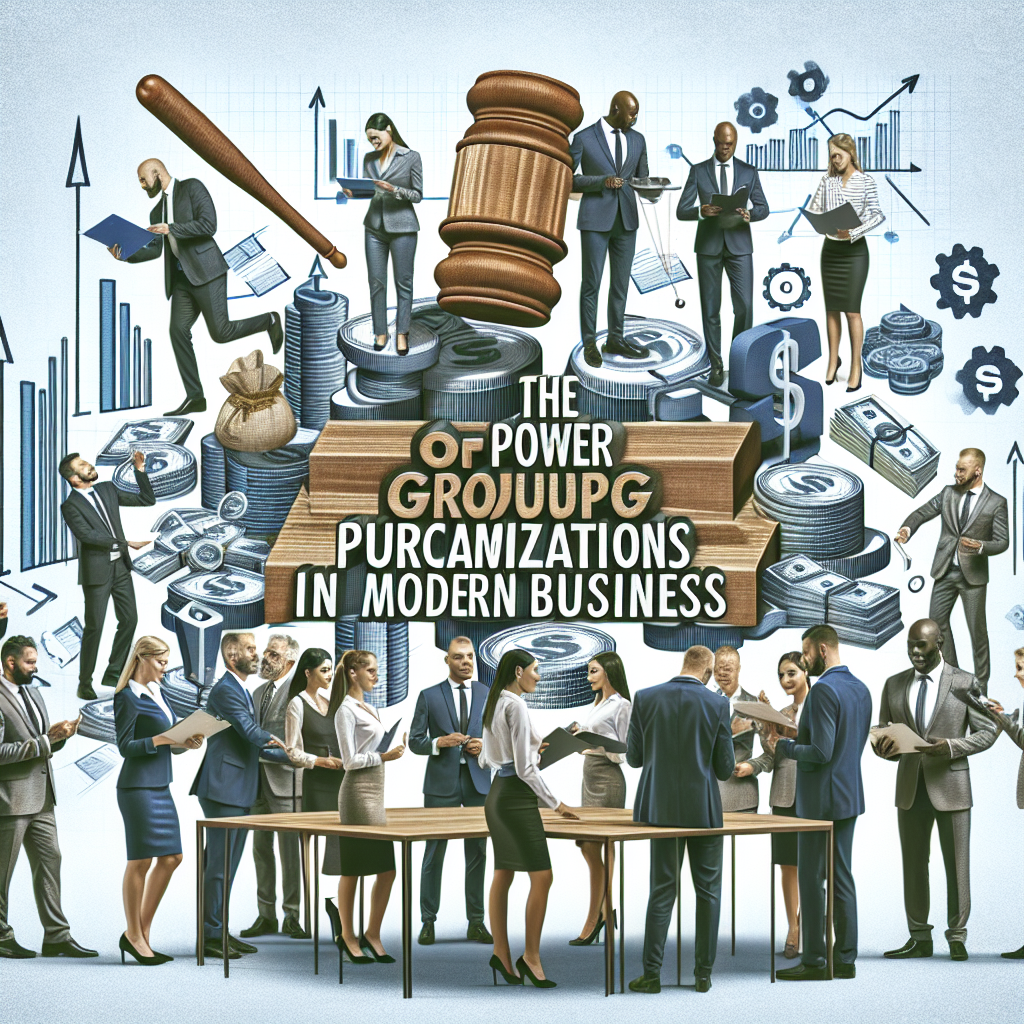Introduction
Procurement specialists play a crucial role in organizations, serving as the backbone of supply chain management. Their expertise in sourcing products and negotiating contracts directly impacts a company’s efficiency and profitability.
At HubZone Depot, we embody this spirit with our mission to provide a wide range of products to government entities and private sector clients. Our offerings include:
- Office supplies
- Industrial tools
- Janitorial products
- MRO (maintenance, repair, and operations) items
- Laboratory supplies
We pride ourselves on strategic partnerships that enable us to deliver value while supporting community growth through local hiring.
In this article, we will explore:
- Skills required for procurement specialists
- Salary insights
- Growth potential in this field
Understanding these elements is vital for anyone looking to thrive in procurement specialist jobs. For instance, mastering procurement optimization can significantly enhance one’s effectiveness in this role. Moreover, understanding tail spend management can lead to drastic cost reduction through collective spend, a valuable skill in today’s competitive market.
Furthermore, for those aiming to work with nonprofits, knowing how to maximize federal grant funding can be a game-changer. Lastly, it’s essential to remember that procurement isn’t just about sourcing products; it’s also about understanding the needs of employees. For instance, providing the right break room supplies can significantly improve employee morale.
Understanding the Role of a Procurement Specialist
A procurement specialist plays a crucial role in any organization, ensuring that products and services are acquired efficiently and cost-effectively. This position is essential for maintaining supply chain integrity and operational excellence.
Key Responsibilities Include:
1. Sourcing Products
Identifying and selecting the right products needed by the organization. This involves market research and assessing suppliers to meet quality standards. The process of sourcing can benefit significantly from strategic sourcing, which focuses on long-term supplier relationships and total cost of ownership rather than just price.
2. Evaluating Suppliers
Conducting thorough assessments of potential vendors based on criteria like reliability, price, and quality. Building strong relationships with suppliers can lead to better deals and consistent product availability. It’s essential to stay updated on top trends in supplier innovation to make informed decisions.
3. Negotiating Contracts
Securing favorable terms through effective negotiation tactics. A procurement specialist must ensure that contracts align with organizational goals while maximizing savings. This aspect of the role often requires mythbusting common misconceptions about purchasing groups, which can help in understanding how to leverage group purchasing organizations for better contract terms.
These responsibilities highlight the critical impact procurement specialists have on an organization’s success, emphasizing their importance in achieving strategic objectives. Their expertise not only aids in sourcing and evaluating suppliers but also plays a crucial role in negotiating contracts that align with the organization’s goals while maximizing savings, a skill akin to the art of frugal living.
The Impact of Procurement on Organizational Success
Effective procurement strategies play a crucial role in shaping an organization’s cost structure and enhancing profit margins. Here’s how:
1. Cost Savings
By negotiating better terms with suppliers, procurement specialists can secure lower prices for goods and services. This directly reduces operational costs, allowing companies to allocate funds elsewhere.
2. Supplier Relationships
Building strong relationships with vendors leads to improved service levels, timely deliveries, and often better pricing. Reliable supplier partnerships can enhance overall efficiency.
3. Innovative Solutions
Procurement specialists stay updated on market trends and emerging technologies, helping organizations adapt and innovate. This agility can lead to significant competitive advantages.
4. Risk Management
A balanced procurement strategy also involves assessing supplier risks. Diversifying the supplier base mitigates potential disruptions, ensuring business continuity.
5. Indirect Spend Management
Understanding what businesses need to know about indirect spend is essential for maximizing savings and efficiency in procurement processes.
6. Ensuring Contract Compliance
Adopting best practices for procurement such as ensuring contract compliance can further enhance the effectiveness of procurement strategies.
Investing in effective procurement processes creates a ripple effect that boosts organizational performance, ultimately driving success and growth. Moreover, effective sourcing strategies for hiring top talent can also significantly impact the overall success of an organization by attracting the right skills and expertise.
Essential Skills for Success as a Procurement Specialist
Success in Procurement Specialist Jobs depends on a combination of skills that help navigate the complexities of sourcing and supply chain management.
1. Negotiation Skills
The ability to negotiate is crucial. Procurement specialists must secure favorable contracts that not only meet budgetary constraints but also align with organizational goals. Skilled negotiators can build strong relationships with suppliers while ensuring competitive pricing.
2. Analytical Skills
Evaluating supplier performance and product quality requires sharp analytical skills. Procurement specialists sift through data to identify trends, assess risks, and make informed decisions. This skill set enables them to recognize high-performing suppliers and ensure product quality aligns with the company’s standards.
3. Communication Skills
Effective collaboration with vendors and internal teams cannot be overstated. Clear communication fosters relationships and ensures everyone is on the same page regarding expectations, timelines, and deliverables. Procurement specialists often serve as the bridge between departments, articulating needs and facilitating understanding across varied stakeholders. This highlights the importance of transparent supplier communication, which is essential in building trust and driving business growth.
A well-rounded procurement specialist possesses these essential skills, positioning themselves for success in an evolving field. Emphasizing negotiation tactics, analytical prowess, and effective communication enhances both individual performance and organizational success in procurement roles. Additionally, focusing on optimizing supplier management can significantly contribute to achieving business objectives. Understanding how to maximize supplier performance ensures quality and reliability in products sourced, while mastering supplier relationship management can lead to long-term partnerships that benefit all parties involved.
Educational Background and Training Requirements in Procurement
A solid educational foundation is essential for aspiring procurement specialists. Here’s a breakdown of what to expect:
Typical Qualifications
- A bachelor’s degree in business, finance, or a related field is typically required.
- This educational background provides crucial knowledge in areas like supply chain management, financial principles, and strategic sourcing.
Advanced Education Options
- Pursuing a master’s degree, such as an MBA with a focus on supply chain management, can significantly enhance career prospects.
- Advanced degrees offer deeper insights into procurement strategies and leadership skills.
The benefits of advanced education include:
- Increased job competitiveness
- Access to higher-level positions
- Potential for higher salaries
However, not everyone has access to extensive resources for their education. In such cases, it’s important to succeed with limited resources by embracing constraints, optimizing processes, and leveraging networks for business success.
Investing in your education opens doors to exciting opportunities within the procurement landscape. It empowers professionals to adapt to evolving industry demands while equipping them with the skills necessary for effective decision-making. Additionally, exploring options such as exclusive membership benefits can provide valuable resources and support throughout your educational journey.
Salary Insights for Procurement Specialists
Understanding the financial landscape for procurement specialists is vital for anyone considering this career path. Here’s a snapshot of current salary statistics:
- The median annual salary for procurement specialists typically hovers around $65,000.
- More experienced professionals, like purchasing managers, can earn significantly more, often exceeding $100,000 annually.
Salary can vary based on several factors:
- Industry: Procurement specialists in manufacturing may earn different salaries compared to those in healthcare or government sectors. For a detailed look at how the industry affects salary, you can explore the data provided by MERIC.
- Location: Geographic location plays a crucial role; urban areas tend to offer higher salaries due to the cost of living.
As procurement continues to evolve with technology and strategic partnerships, these salary figures may shift. Understanding these insights helps set realistic expectations and encourages individuals to strive for growth within the field. For those interested in advancing their careers, pursuing an online master’s in supply chain management could be a beneficial step.
Factors Influencing Salary Growth in Procurement Careers
Salary growth for procurement specialists is influenced by several key factors:
1. Experience Level
As with many careers, experience plays a pivotal role in salary progression. Entry-level procurement specialists may start at a median salary, but as they gain experience, their earning potential increases significantly.
- Entry-Level: Typically lower salaries, focusing on learning the ropes.
- Mid-Level: With several years of experience, professionals can see substantial raises due to their enhanced skills and expertise.
- Senior-Level: Experienced specialists often hold strategic positions and command high salaries because of their ability to impact organizational success through effective procurement strategies.
2. Industry Sector
Salaries also vary across different industries. For instance:
- Manufacturing: Generally offers competitive salaries due to the complexity of supply chains and the need for skilled procurement professionals.
- Government: While this sector may provide stable employment, it often has set salary scales that may not match private industry compensation levels.
Understanding these factors helps aspiring procurement specialists navigate their career paths effectively, ensuring they are well-informed about potential earnings in relation to their experience and chosen industry.
Exploring Growth Potential in Procurement Careers
The future looks bright for procurement specialists. Key factors driving this growth include:
1. Job Outlook
The demand for procurement professionals is increasing as companies recognize the importance of strategic sourcing and supplier management. With the rise of e-commerce and global supply chains, skilled individuals are essential. To stay ahead, leveraging the best procurement software and outsourcing companies can revolutionize your procurement strategy.
2. Automation Trends
Automation is reshaping procurement processes. Technologies such as AI and machine learning streamline tasks like data analysis and supplier evaluation, allowing professionals to focus on strategic decision-making.
3. Emerging Roles
New positions are emerging within procurement, including roles that specialize in data analytics and technology integration. These roles require a blend of traditional procurement skills and tech-savvy expertise.
For those considering a career in this field, the combination of job stability and diverse advancement opportunities makes procurement an exciting path worth exploring. However, it’s important to remember that [procurement can face crises](https://hubzonedepot.com/uncategorized/procurement-in-crisis-building-resilience-for-tough-times) which necessitate building resilience for tough times. Additionally, for those managing a one-person procurement function, implementing some strategic solutions can optimize cost efficiency and supplier management, as outlined in our tips for managing a one-person procurement function. Lastly, understanding the industry jargon is crucial; hence, it’s advisable to be aware of certain procurement terms to avoid for better communication regarding the value of procurement.
Strategies for Career Advancement in Procurement
Advancing in procurement requires a proactive approach and a commitment to personal development. Here are two vital strategies:
1. Networking
Building connections in the industry can unlock numerous opportunities. Attend industry conferences, join professional organizations, and participate in online forums to meet like-minded professionals. Engaging with others can lead to mentorship opportunities and insights into job openings.
2. Continuous Learning
Staying updated with industry trends is crucial. Pursue certifications like the Certified Professional Purchaser (CPP). Such credentials not only enhance your skills but also demonstrate your commitment to the profession. Consider additional training programs or workshops that focus on emerging technologies and procurement strategies. For instance, exploring resources like Frank Corris’s transformative journey in mastering procurement through continuous learning could provide valuable insights.
Furthermore, embracing digital transformation is key in today’s procurement landscape. Familiarizing yourself with procurement software solutions, understanding their key features, integration tips, and future trends can greatly optimize your procurement processes.
Embracing these strategies can position you as a knowledgeable and sought-after procurement specialist, paving the way for career growth and new opportunities in this dynamic field.
Conclusion
Pursuing a career in procurement offers exciting career prospects and significant potential for growth. The demand for skilled procurement specialists continues to rise, making it a promising field for job seekers.
Key points to consider:
- Strong emphasis on strategic thinking
- Opportunities for continuous learning and advancement
- Ability to impact organizational success directly
Engaging in Procurement Specialist Jobs: Skills, Salary, and Growth Potential not only leads to personal career fulfillment but also contributes to the overall efficiency of the organizations that rely on these essential services. Don’t miss out on this dynamic opportunity!





